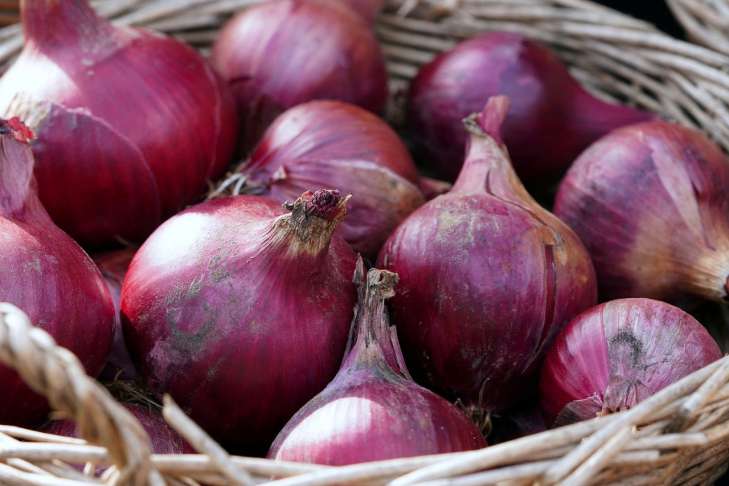Red Onion: Health Benefits
The bulk of the nutrients are contained in the top layers of red onions, so it is important to peel them carefully, removing no more than one layer.
In addition, you should not exceed the norm for onion consumption - no more than 100 grams per meal.
What are the benefits of red onion
Red onions contain almost twice as many natural antioxidants as light varieties.
Thanks to this, it has a powerful anti-inflammatory effect.
In addition, red onions prevent the development of diabetes, nervous diseases and slow down the aging process of cells.

Red onions contain iron, manganese, copper, fluorine, vitamin C, K, group B, beta-carotene, selenium, useful essential amino acids - arginine, leucine, phenylalanine, tryptophan, phytoncides - have antimicrobial properties.
Important! The main benefits of the vegetable are contained in the first layers (closer to the scales).
Which onion is healthier: red or regular onion
Red onions may have higher amounts of antioxidants, which are helpful in fighting free radicals and inflammation.
However, the difference in antioxidant levels between red and white onions is not so significant that one variety is significantly healthier than the other.
How to eat red onion correctly
Red onions are a great addition to all vegetable salads and appetizers.
It can be grilled in thick rings, baked in the oven, or simply eaten with bread, especially in winter.
Make pizza with red onions - it will have an unusual and interesting taste, but your family will probably like it.
Previously, we talked about the benefits of egg yolk.


